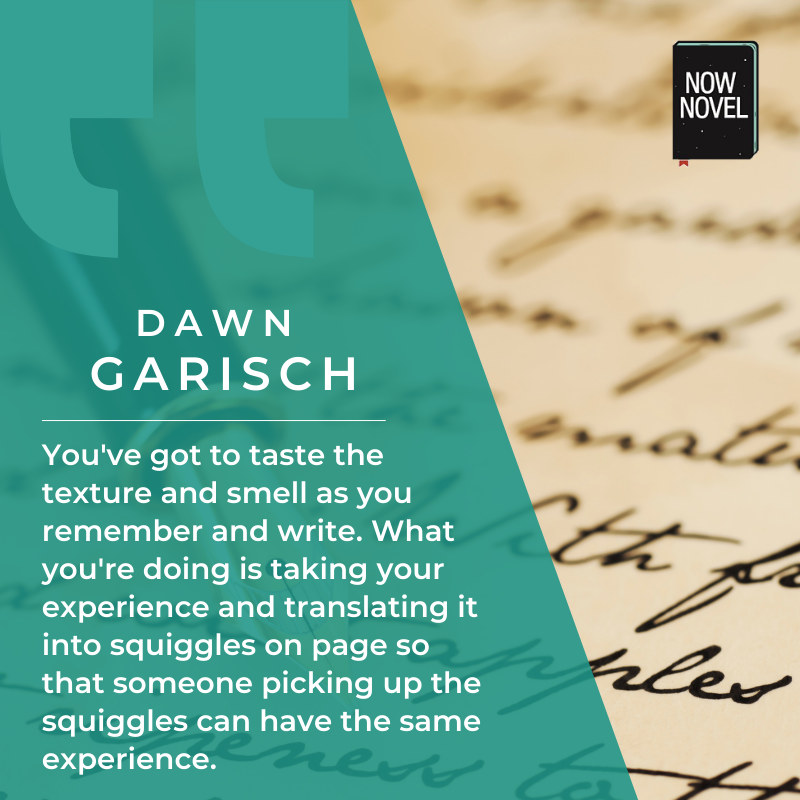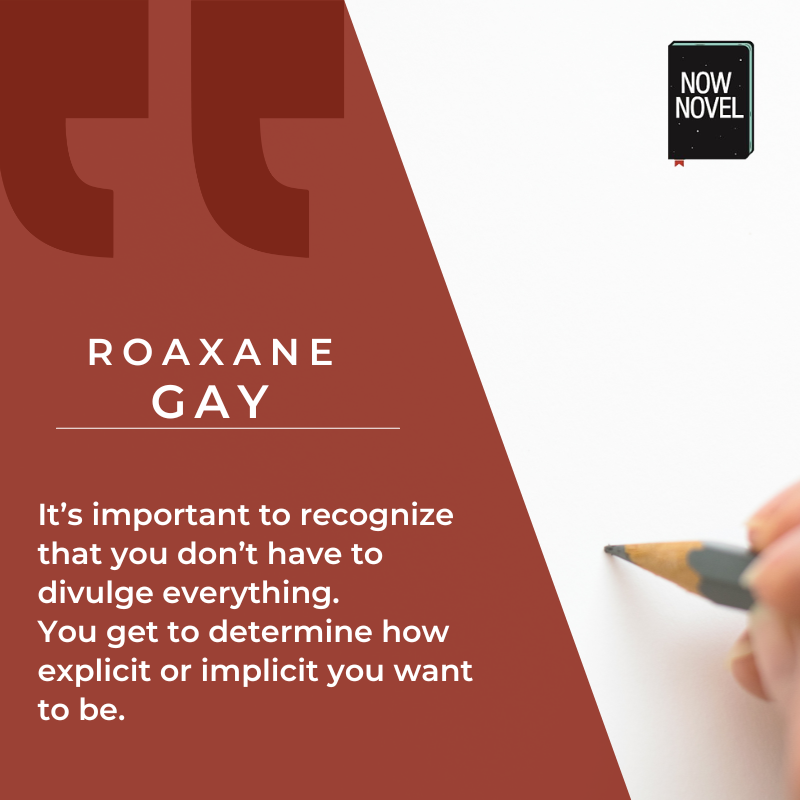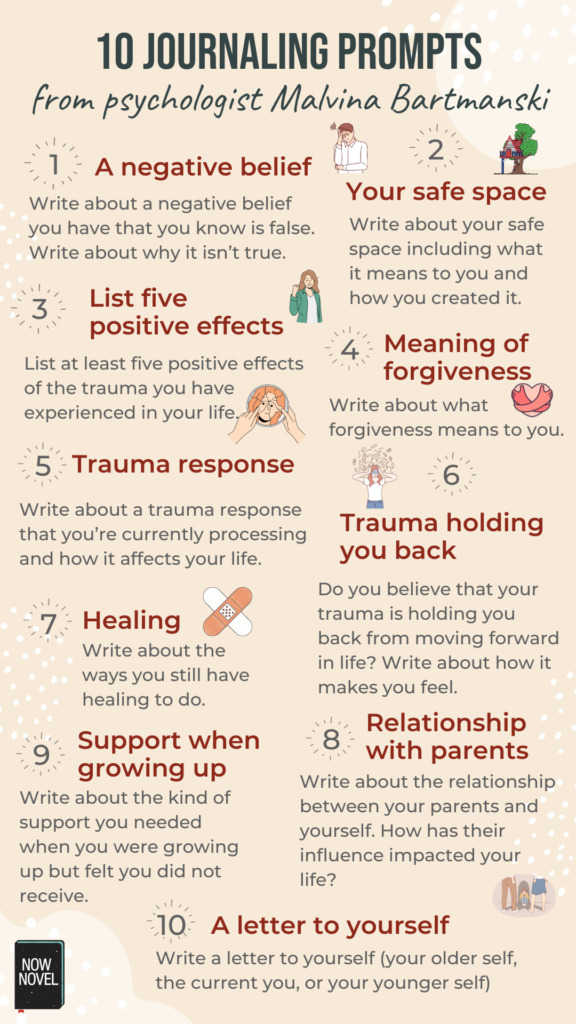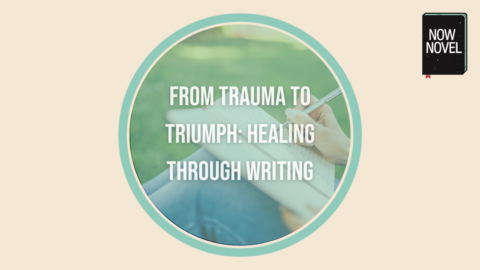As a life-long keeper of journals, I have chronicled the ups and downs of my life in sometimes minute detail. When I parted from, and moved out of my former partner’s home, I filled up notebook after notebook with a dissection of what went wrong, how we might have saved our relationship, and whether we might find a way back together. It felt like a monumental tragedy, like having watched a house burn down next to an ocean of water that might have doused the flames.
As the months and years passed, however, and as I carried on writing about that story and that part of my life, I found myself re-working the story, reframing it, seeing how to view the ending not as a tragedy, but as a learning curve, and coming to the realisation that it wasn’t a relationship that was going to go the distance, and I made peace with its ending.
Re-framing the narrative, changing the script, and using it as a learning experience means that I am unlikely to go into a similar situation. These are all realisations that I came to through both therapy and journal and short story writing, as I reworked that relationship, and its permutations, into fiction.
I was doing what countless others have done with their writing: working through the trauma of a life event by examining its minutiae. And, as I spoke to an expert in life writing, psychologists and a researcher of writing, in preparing to write this post, I heard more about changing your life script and reframing a traumatic incident.
You can work through your trauma through writing, and study after study confirms this. This is one study that examines this in detail. Some of the benefits of writing about trauma include a reduction in anxiety and depression as well as improvements in health.
Types of trauma
Briefly, these are some events that are classified as trauma and can have lingering or life-long effects.
- Physical or sexual assault
- Natural disasters: earthquakes, hurricanes, floods, wildfires, tornadoes, or tsunamis
- Accidents: car crashes, workplace accidents, or severe injuries
- War and combat
- Terrorist attacks
- Childhood abuse or neglect
- Serious illness or injury
- Loss of a loved one through death or a breakup.
- Kidnapping or hostage situations
- Community violence, high crime rates
- Human trafficking

Healing through writing
How can you heal trauma through writing? Malvina Bartmanski, an integrative clinical psychologist in private practice, says: “Writing can be regarded as a form of expressive therapy and a useful introspective practice. It is a good adjunct to other methods from healing from trauma. Personally, I don’t think it is possible to heal through trauma through writing alone. I believe this can be a good add-on to assist gaining insight, as well as allowing one to empty the mind of distressing thoughts.”
She adds that, “Trauma is a physiological experience, and thus trauma memory is not only stored in a cognitive manner but also as a physical imprint in the body. Therefore, to heal from trauma it is necessary to access pent up nervous system energy that is stuck due to incomplete fight, flight, and freeze responses that take place during traumatic experiences. One needs to shake, shiver, and cry this pent-up energy out of the body to re-regulate the nervous system back into equilibrium.
“Writing after these kinds of body-based trauma psychotherapy sessions can allow for much insight being gained, and ‘aha’ moments as it can lead to self-reflection. Writing is a useful manner in which to bring to the surface unconscious trauma memories, and journaling daily could also assist in illuminating one’s triggers, patterns and beliefs (which are rooted in past traumatic experiences).”
Writing about trauma can provide one with various benefits. Bartmanski details these as:
- The ability to find meaning that leads to positive life changes following a traumatic event
- A way to integrate the traumatic experience in the present
- Assist in moving emotions and experiences of out the mind – it can assist in coping with distressing experiences and provide emotional regulation and relief
- Being a more cognitive process, writing can also move one away from the turbulent emotions as it shifts the brain from the emotional or trauma centre in the brain to cognitive cortical functioning.
You can use writing help heal trauma through life writing such as journalling, doing workshops, using exercises from books on the subject, or by writing trauma in novels.
Come my darling, taking the self by the hand
Dawn Garisch is a novelist, memoirist and head of the Life Righting Collective, which runs courses for those wanting to explore life writing. I chatted to her about the impact and power of life writing.
“The first task creative is just taking the self by the hand and saying, ‘Come my darling let me show you what happened, show you who was there what they said, how they said it.’ You’ve got taste texture and smell as you remember and write, what you’re doing is taking your experience and translating it into squiggles on page so that someone picking up the squiggles can have the same experience.”
And that, too, is part of the healing power of writing trauma—sharing your writing and finding that others will resonate with it, find themselves in the story you have told as they may have experienced something similar.
Garisch notes that her workshops, which are also available online, are about creating safe spaces, to help people “get inside the story, and not just report on the story, but as Ursula K. Le Guin says, to ‘report back as faithfully as possible.’”
Bartmanski suggests journaling as one tool, and has a range of prompts to get you exploring those inner recesses.
Writing is a useful manner in which to bring to the surface unconscious trauma memories, and journaling daily could also assist in illuminating one’s triggers, patterns and beliefs (which are rooted in past traumatic experiences)—Malvina Bartmanksi
Tweet This

GET YOUR FREE GUIDE TO SCENE STRUCTURE
Read a guide to writing scenes with purpose that move your story forward.
Learn moreJournal prompts
- Write about a negative belief you have that you know is false. Write about why it isn’t true.
- Write about your safe space including what it means to you and how you created it.
- List at least five positive things the trauma has had on your life.
- Write about what forgiveness means to you.
- Write a letter to yourself (it could be your older self, the current you, or your younger self)
- Write about a trauma response that you’re currently processing and how it affects your life.
- Write a summary of your day.
- Write about the challenges you faced today and how you overcame them.
- Write about at least one thing you learned today and would not want to forget.
- Write about the symptoms you experienced today and how did you manage them.
- List the self-care practices you engaged in today.
- Do you believe that your trauma is holding you back from moving forward in life? Write about how it makes you feel.
- Write about how you can show yourself the same understanding, compassion, and kindness as you would your loved one.
- Write about the ways you still have healing to do.
- List five things, people, or places that make you feel safer.
- Write about the ways you’ve persevered despite the trauma you’ve experienced.
- Write about your fears as a child, teenager, and adult and how you coped with them.
- Write about your childhood. How was it when you were growing up? Was your childhood home stable or abusive?
- Write about the relationship between your parents and yourself. How has their influence impacted your life?
- Write about one thing you wish your loved one understood about you.
- Write about the event that triggers your flight or fight response the most. Write about the kind of support you needed when you were growing up but felt you did not receive.
Another psychologist who is also exploring trauma and how to “change that script” is Jacques Vermeulen. He is currently doing a PhD on the subject. Speaking to Vermeulen with literary researcher, Ilse de Korte from North West University, South Africa, we spoke about a program that he is busy creating for use in his therapeutic practice called, “Changing the Script”. As he explains it, this will be centered around, “changing the script of your life. The script you have about who you are, how you operate, where you come from, what happened to you. Because if we change that script, you change everything.”
He credits the work of Gabor Maté as triggering his fascination with this work: “Trauma sits in our bodies. In therapy, we treat the brain, basically the thinking part, but your body keeps repeating it. Your body remembers this trauma. And then we keep falling back into it, and we keep repeating the trauma verbally, in what we say about ourselves and how we talk about ourselves to others.
‘The hippocampus is where the trauma, the memories, and spatial memories are kept. So, it almost becomes like a vicious circle. How I produce my words, how I understand my words, and how that triggers the hippocampus in the memories of the trauma. So if I can write, which is part of that whole process, it slows down this potential vicious cycle.”
Vermeulen’s program will take place within group therapy. One person will write their story, and this will be passed around to the others in the group, who will embellish and change it. It’s a way of changing your own script, yet through the eyes of others.
Part of the theory Vermeulen will use is based on Victor Frankl’s work on instilling hope. This is how it will work. “Let’s say, the one person in the group, who is now 55, was sexually abused by their stepfather at the age of six. They couldn’t tell anyone. Their stepfather threatened them, you know, the typical scenario. Then when they were 14, their body developed, all of a sudden they realized boys were paying attention to them, and they became sexually promiscuous and so forth. So now they’re 55 and have all these scars in their life.
“It’s not to take away the facts. So they will write their story. Perhaps they’ll take, not the blame, but responsibility. The responsibility for what they could have changed. Because they’re not saying it’s their fault that this happened for so many years because they didn’t tell their mother. But what they are saying is if they are in a situation like that where they are threatened, perhaps they shouldn’t stay quiet next time. Perhaps they could speak up.
“This is based on the research of Ann W. Burgess who did research on women who were raped. And she noticed that women who took responsibility for certain aspects of the crime healed much quicker, because that gives their brain the message of power. There’s something they can do. They’re empowered. This will not happen again.”
While Vermeulen’s work will take place in a controlled, therapeutic environment, this technique might be extrapolated into your own writing. Traumatic events could also be written from the ‘outside in’. You could write in the third person, or write as though someone else were looking at your story. Annie Ernaux uses the third person in her memoir and what is regarded as her magnum opus in The Years.
Meanwhile, De Korte is working on research using storytelling to effect change the way readers might react to a story. As an academic and literature researcher she is working on a program to take the concept of romance novels and to get writers to craft them in a way that will affect change.
“I always say we know that it’s the formula and it’s escapism, and it has a happy ending. I also lecture on crime novels. And one of the things that often is discussed is crime novels as a new type of engaged literature. And this is also a way for people to change or to think about societal problems and to think about what’s going on in society. But it’s cathartic because in the end, the baddy always gets caught. The criticism is that it’s unrealistic because in real life, the baddie isn’t always caught. As in romance novels, you don’t always end up with Prince Charming or whatever. But the idea is that there’s hope, there’s this formula. And why you like reading it is because you know that there is going to be a happy ending.
“You can push the edges of the genre and challenge the genre to do certain things. So my idea then—I’ve discussed it with quite a few writers as well—and they were very inspired by the idea of writing things that could potentially change people’s way of thinking. So you can do a sort of reception study. You try and gauge like what was your thinking before you read the novel? What was your thinking during? Did it change your way of thinking about certain things? So that’s where my interest lies, is can you change the script by reading something? We are all affected by what we read, so my gut feel is yes, obviously you can.”
De Korte will involve a number of writers, asking them to write a romance novel in a certain way that is aligned with helping to change people’s minds about events.
Expressive writing
One of the pioneers of using writing to heal trauma is James Pennebaker, psychologist, researcher and the author of books such as Expressive Writing: Words that Heal. In this book, he discusses how writing about your thoughts and emotions can promote emotional and physical well-being. He presents scientific evidence supporting the idea that writing about traumatic or challenging experiences can lead to improved mental health, reduced stress, and enhanced immune function. There are also a number of exercises included: for example he also suggests writing about a traumatic event that has not happened to you, personally. He explains that those who write about their trauma also strengthen their immune systems. He explains his method briefly in this YouTube video below.
Writing in Psychology Today, Art Markman, a colleague of Pennebaker, writes that our representation of traumatic events is fragmented, and because they are painful, we tend to try not to think about them.
So, a dangerous cycle can develop with traumatic events. Because they are fragmented, there are constant reminders of them. But, because they are painful, we do not process them deeply. And so, we suffer the stress of remembering a painful situation without resolving the incoherence.
What is particularly interesting about this procedure is that it is just an effect of writing about these events. The people doing the writing do not have to believe that anyone will ever read what they wrote. So, the benefit of writing is not in disclosing this personal information to someone else. The benefit is in creating a story that links together the emotional memories. Making these traumatic events more coherent makes memories of these events less likely to be repeatedly called to mind, and so they can be laid to rest.
Another method of writing trauma is explored by Brit Haines who suggests that you write in present tense when processing trauma in this way.
Therapists also recommend writing trauma stories in the present tense. This view allows the events to occur in the present moment of your mind rather than keeping them in the past, where many people store negative thoughts to avoid dealing with them.
Present tense provides vivid and emotional descriptions. Write without a filter. Copy down what you are thinking and feeling. You can go back to edit and organize your thoughts later. Focus on what occurs to you when it does. Trust your experience.
The process of writing in the present tense is also more therapeutic and healing for people who have experienced trauma. Allow yourself to become vulnerable. Writing your story is worth the fear of your friends and family finding out the truth.

Roxane Gay on trauma writing
In a wide-ranging interview writer in Vanity Fair, Roxane Gay, speaks about the writing of trauma, having taught the genre. She acknowledges that trauma helps people to work through an issue, but also says that audience should be considered.
For some people, writing about trauma well means that it helps them work through something. But is that going to be writing trauma well for an audience? And which audience? You really do have to think through these questions as you’re writing trauma and decide, what is your end goal? And what are you going to consider a success?
Gay also speaks about the reception of Hunger, her honest memoir of food, weight, self-image, and how it resonated with others. This feeds directly into the idea that a story will resonate with others and become ‘bigger’ than just your own story. She was happily surprised about its reception. Not only did many people resonate with it (and not just her ‘fat brethren’ as she puts it), but it affected change:
It created a small measure of change. Now, it’s being taught in many medical schools and it is helping doctors rethink how they interact with their fat patients and how they treat their fat patients and how they understand their fat patients.
She also has some good advice on writing the craft of trauma:
You have to have boundaries. And boundaries are this great container that will keep out things you don’t want to include, and keep in everything else. Once you have boundaries, you know that you’re never going to be harmed, and you’re not going to cause harm, by whatever you’re doing because you respect yourself enough to have these boundaries. It’s important to recognize that you don’t have to divulge everything.
You get to determine how explicit or implicit you want to be. So many people think that if I’m writing about trauma, I have to be incredibly explicit and I have to give you every gory detail. You want to think about how you are going to put the reader into your experience, or whatever experience you’re writing about, so they can really understand the impact of it.
You have to start to think about the choices that you’re making in terms of the level of description and the kind of setting and the way you set it up and introduce whatever you’re writing about into the piece.
And you don’t get to use the trauma as a shield from critique. Just like I couldn’t use trauma as a shield from book reviews—nor would I. And that is a useful framework, especially in the realm of writing.

Reading to heal
Bartmanski recommends the following books:
- In an Unspoken Voice: How the Body Releases Trauma and Restores Goodness by Peter Levine. The blends the latest findings in biology, neuroscience and body-oriented psychotherapy to show that when we bring together animal instinct and reason, we can become more whole human beings.
- In the Realm of Hungry Ghosts by Gabor Maté. He looks to the root causes of addiction, applying a clinical and psychological view to the physical manifestation and offering some enlightening answers for why people inflict such catastrophe on themselves.
- The Myth of Normal: Trauma, Illness, and Healing in a Toxic Culture by Gabor and Daniel Maté. A ground-breaking investigation into the causes of illness, a bracing critique of how our society breeds disease, and a pathway to health and healing.
- The Body Keeps the Score Brain, Mind, and Body in the Healing of Trauma by Bessel Van Der Kolk. he uses recent scientific advances to show how trauma literally reshapes both body and brain, He explores innovative treatments that offer new paths to recovery by activating the brain’s natural neuroplasticity.
- What Happened to You? by Oprah Winfrey. Oprah Winfrey and brain development and trauma expert, Dr. Bruce Perry, discuss the impact of trauma and adverse experiences and how healing must begin with a shift to asking, “what happened to you” rather than “what’s wrong with you?”
- It Didn’t Start with You: How Inherited Family Trauma Shapes Who We Are and How to End the Cycle by Mark Wolyn. A ground-breaking approach to transforming traumatic legacies passed down in families over generations, by an acclaimed expert in the field
- The Story You Need to Tell: Writing to Heal from Trauma, Illness or Loss by Sandra Marinella is a good resource for writing to heal from trauma. She shares stories of healing, as well as her own story of using journaling and expressive writing to heal from breast cancer and postpartum depression. She suggests various techniques, prompts, and exercises to unravel and make sense of what is going on inside.
- When reading about trauma, make sure you can ground yourself after and seek support as this can be quite dysregulating, . I really like the SARK books as a means of assisting people with self-expression – these are books that are highly inspirational, and light-hearted that can connect one back to the positive aspects of life.
- The Artist’s Way is a magical book by Julia Cameron that provides a guided journaling process that allows one to learn how to journal and access deeper parts of the self, often having the result of reconnecting a person back to their creativity (often things that are lost after the experience of trauma).
CONNECT WITH A COACH
Don’t know how to begin that novel? Or is your current work in progress stalled? Team up with a coach who will help you guide you through starting and finishing your novel.
Learn More
Five non-fiction books that explore trauma
For examples of how writers have handled the writing of trauma in memoirs and non-fiction, here are some books to consider.
- A Widow’s Story: a memoir by Joyce Carol Oates is a searing examination of what it’s like to learn a husband unexpectedly, Raymond Smith, after nearly 50 years of marriage. She takes you right within that weird twilight process called grief.
- The Year of Magical Thinking and Blue Nights by Joan Didion. These two memoirs detail Didion’s unexpected loss of her husband, John Gregory Dunne, and of her daughter Quintana. In rich and poetic detail Didion takes you inside her surreal nightmare into grief.
- Annie Ernaux was awarded the Nobel Prize in Literature. Her novels and non-fiction books uncover and excavate the details of her life, from an abortion in France in the 1960s to affairs with younger men, to her stifling marriage, to an examination of her parents’ lives. She has a long backlist, but you could start with The Years, her 2008 historical memoir. It has won a host of awards.
- When Breath Becomes Air by Paul Kalanithi Kalanithi’s memoir deals with his battle against terminal cancer and the existential questions it raises. His poignant narrative reflects on life, mortality, and coping with a life-altering diagnosis.
- A Rumor of War by Philip Caputo. His memoir offers an unvarnished account of his experiences as a Marine Corps officer during the Vietnam War. It delves into the trauma of combat and the moral dilemmas faced by soldiers.
If you are considering writing a memoir have a read of our blog post on nine ways on how to approach writing it. Some of the important takeaways from this piece can be summed up as below:
- Know memoir vs autobiography differences
- Choose a life-writing format to suit your subject
- Lead with a great story hook
- List pivotal or watershed moments to include
- Highlight changes in who, what, why, where, or when
- Put your reader there with you
- Change names if necessary to stay true
- Share honest voice and persona
- Speak to people who were there for details
And when you have written a memoir, co-founder of Now Novel, Bridget McNulty has some useful tips for how to go about writing and publishing a memoir. Some of her pointers include understanding the ingredients of great memoirs, knowing what to leave out, using sensory details, and also including fictional writing techniques. With regards to publishing her primary tips range from writing every day to building a network in your community.
If you are considering writing a novelized memoir, however, one of our writing coaches, Hedi Lampert, has some advice which ranges from being brave enough to tell the story, and making time to sit and actually do the writing.
In the end, whether you are writing to heal trauma, or for greater understanding of yourself, or to shape and publish a memoir, there is a benefit to simply putting the words on the page.
The final word belongs to Bartmanski:
Writing is a form of self-care and perhaps it can be useful beyond trauma, as a means of a daily emptying of the mind. There is no doubt it allows you to better understand your thoughts and emotions better. Putting your feelings into words, allows you to gain insight on what is causing them and can help you work through them. When you write your thoughts and emotions, you release them from the mind onto paper. It can also be useful in ordering, planning and structuring your life; tracking symptoms and difficulties; helping prioritize problems or concerns; identify negative thought patterns and perhaps also remembering what you are grateful for. As it is a private process, it really allows you to access your authentic self – often to an even greater extent that in the therapy room as there is no fear of judgement.
- The Life Righting Collective, headed by Dawn Garisch, is at www. liferighting.com
- Malvina Bartmanski is on Instagram: @malvinapsychology and @autoimmunetherapy or at www.malvinapsychology.com


